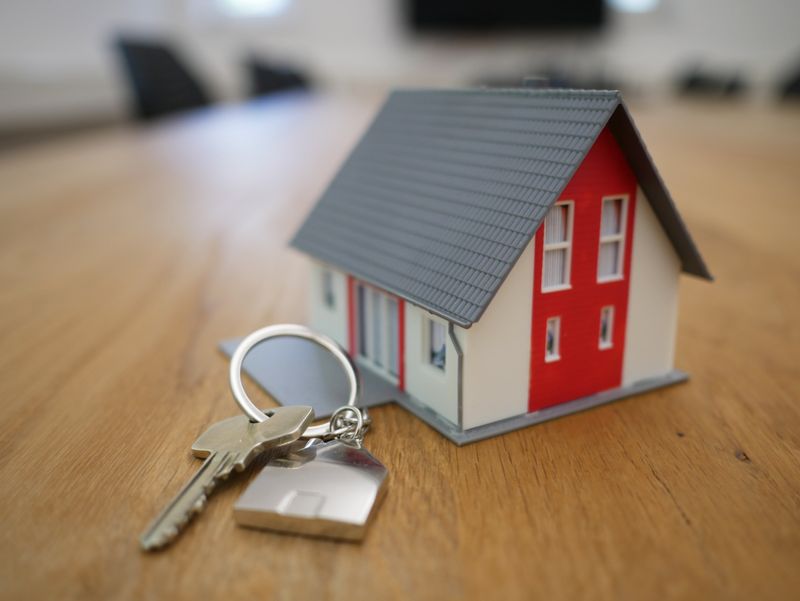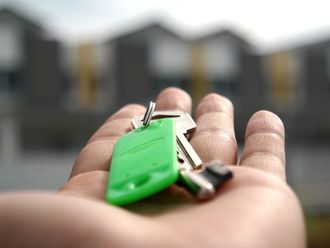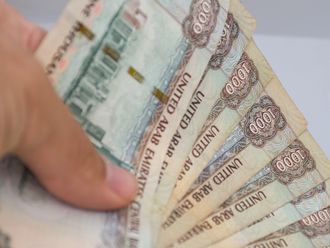
Dubai: Many people think it is a good idea to put their child’s name on the deed to their home, especially if one of the parents is deceased.
(What is a deed? A deed is a formal document that defines how a property is owned, transferred, and inherited.)
Although you can own a physical copy of a book, you can’t hold a book’s title in your hand. In this way, a book title and a property title are the same: Neither is a physical object, but both are concepts. A deed, on the other hand, can (and must) be in your physical possession after you purchase property.
Is it wise to put your child’s name on your house deed?
“While putting your child’s name on your home deed is often seen as an inexpensive estate planning technique to ensure your son or daughter receives your home in the future, it can cost you more than you think,” said Masher Suleiman, an estate and financial planning associate based in the UAE.
“In most parts of the world, adding a child to the deed of your house can create complications and may not achieve your goals in the long run. This is why alternative methods of owning real estate with your children should be explored. However, one does not have to worry about this risk in the UAE.”

Key risk factor: Capital gains tax
The risk factor that that Suleiman cite, among several other experts, is what is known as ‘capital gains tax’. However, before you understand what ‘capital gains tax’ is, know whether it is applicable in your country of residence. While it applies to most countries worldwide, it does not in a few countries.
There is no capital gains tax imposed in the UAE. While capital gains are taxed as part of regular business profits, the UAE does not impose net worth tax or estate and gift tax.
Apart from the UAE, countries that do not impose a capital gains tax include Bahrain, Barbados, Belize, Cayman Islands, Isle of Man, Jamaica, New Zealand, Sri Lanka and Singapore. Of the most other countries that do levy a capital gains tax, Greece and Hungary have the lowest rates, at 15 per cent.
What are capital gains taxes?
However, in almost every other country, this is a risk you need to factor in. Now, let’s understand what ‘capital gains tax’ is. A capital gain is the difference between your basis (purchase price) and the amount you get when you sell an asset (sale price).
For example, if you purchased a home for $100,000 (Dh367,310) and sold the same house a few years later for $500,000 (Dh1.8 million) you would have to pay tax on your gain of $400,000 (Dh1.5 million) – with some exceptions.
If you add your child to title of your home while living, he or she receives your basis (purchase price) in the home. If your child sells the house after your death, he or she will likely incur a capital gain tax for the difference between your purchase price, and the sale price. See the below illustration.
While putting your child’s name on your home deed is often seen as an inexpensive estate planning technique to ensure your son or daughter receives your home in the future, it can cost you more than you think
Illustration 1: Say you bought your home in 1980 for $100,000 (Dh367,310). In 2010, you add your child to the home deed when the home is worth $500,000 (Dh1.8 million). When you added your child on to your deed, you technically made a gift of one-half the value of the property ($250,000 or Dh918,275).
Your child also receives one-half of your cost basis ($50,000 or Dh183,655). Thus, if you were to die and your child sells the home for $500,000 (Dh1.8 million), then your child would be liable for a capital gain tax on his or her $200,000 (Dh734,620) profit.
“In most countries worldwide, the current capital gain rate is 15 per cent for most people but can be as high as 20 per cent,” said India-based tax consultant Brijesh Meti. Meaning, your child may have a tax bill of $30,000 (Dh110,193) to $40,000 (Dh146,924) on the sale of their one-half share of the home.
“Conversely, your one-half share of the home is likely not subject to capital gains tax because your children will receive what is widely known as a ‘step up in tax’ basis upon your death,” Meti added.
Meaning, their cost basis (purchase price) for your half of the home worth $250,000 (Dh918,275) is ‘stepped up’ from the original purchase price of $50,000 (Dh183,655) to $250,000 (Dh918,275), thereby eliminating the capital gain on the sale of your share of the home, upon your death.
As illustrated above, your child is liable to pay a capital gain tax of $30,000 (Dh110,193) to $40,000 (Dh146,924) for the share you transferred to them. There is likely no tax on the share they receive from you after you pass.
So why not transfer the entire home to your child when you pass? What if instead of adding your child’s name to your deed, you used a ‘revocable living trust’?

What is a ‘revocable living trust’?
“A ‘revocable living trust’ is a popular and risk-free estate planning tool that you can use to determine who will get your property when you die. Most living trusts are ‘revocable’, meaning you can change them as your circumstances or wishes change,” explained Suleiman.
“Revocable living trusts are ‘living’ because you make them during your lifetime. Lawyers sometimes call this ‘inter vivos’.” Here’s another illustration (using the same assumptions as above) considering you used a ‘revocable living trust’ instead of transferring the entire home to your child.
Illustration 2: Say you bought your home in 1980 for $100,000 (Dh367,310). In 2010, you created a trust which gives your home to your child upon your death. Because the house passes upon your death, your child receives a step-up in tax basis on the entire value of the home.
Meaning, if he or she sells the home after your death their cost basis (purchase price) is stepped up from the original purchase price $100,000 (Dh367,310) to $500,000 (Dh1.8 million) (i.e. the value of the home at your death), thereby eliminating the capital gain on the sale of your share of the home.
By not putting your son or daughter on your deed they can take advantage of a full step up in cost basis and save $30,000 (Dh110,193) to $40,000 (Dh146,924) in capital gains tax. They cannot receive this savings if you put them on your deed while living.
Additionally, using a trust or other device to pass your home to our heirs is just as easy as putting their name on the deed, without the risks outlined above. This is one of many reasons a living trust can be the most important document in your estate plan.
A ‘revocable living trust’ is a popular and risk-free estate planning tool that you can use to determine who will get your property when you die
Verdict: Adding an adult child’s name to the home title isn’t the best move
Many parents, in planning their estates, add an adult child’s name to the title of their home, bank account or other assets. This may not be the best approach to estate planning, and may have unintended consequences.
“If the child receives a one-half interest in your home or other assets during your lifetime, the child’s basis in that asset will be the same as yours. That means that the child will be liable for capital gains taxes on the entire increase in value of the asset,” Meti further explained.
“However, if the child receives the asset as an inheritance, the basis will ‘step-up’ to its value at that time, and the child will not be liable for any ‘capital gains tax’.”
So the best way to combat this, according to Suleiman and several other experts, is to establish a ‘revocable living trust’, as elaborated above.
“If you name yourself as the trustee, you will maintain control of your property during your lifetime and will also be able to provide for the distribution of your property after your death,” added Suleiman.
“You will also name a successor trustee who will take over management of the trust if you become incapacitated, or upon your death. You will have the ability to change the terms of the revocable trust or to revoke it in its entirety at any time during your lifetime.”
Bottom line?
In short, the choice you make could impact your home and bank accounts. In deciding whether to add your child’s name to the deed to your house or to your bank accounts, it’s important to consider the worst outcome, retirement planners reiterate.
“A little consideration and advanced planning will save you a lot of stress and heartache. Remember estate planning requires prudence and practicality, rather than short-sightedness and sentimentality,” added Suleiman.












